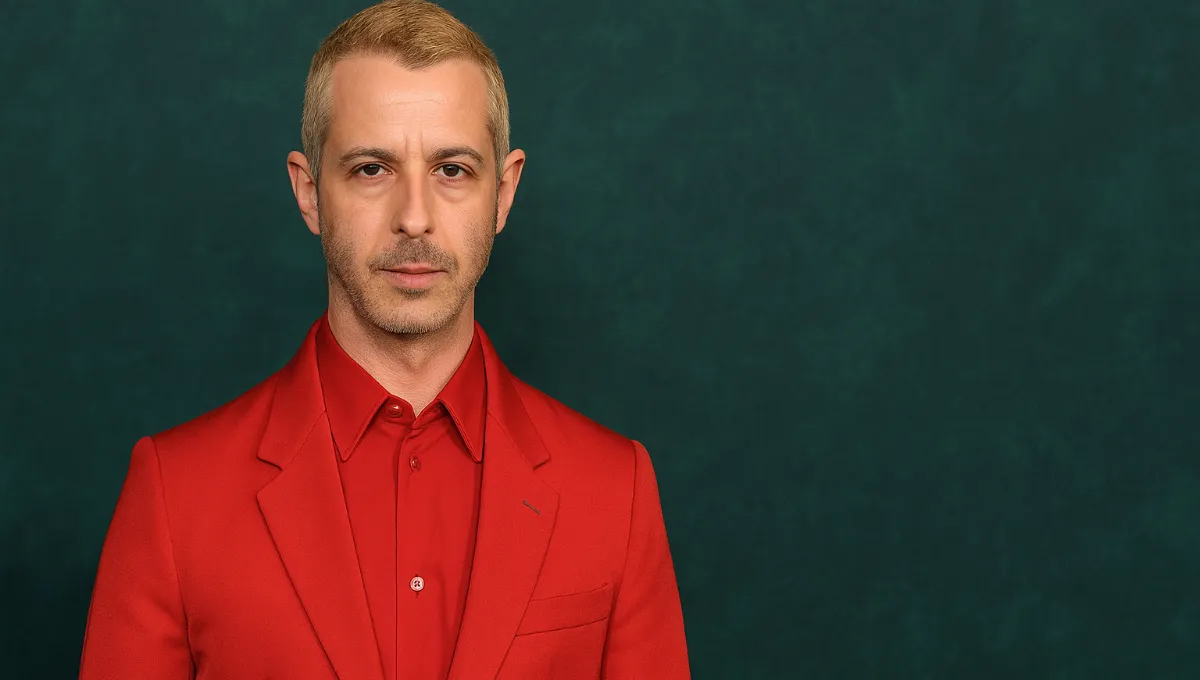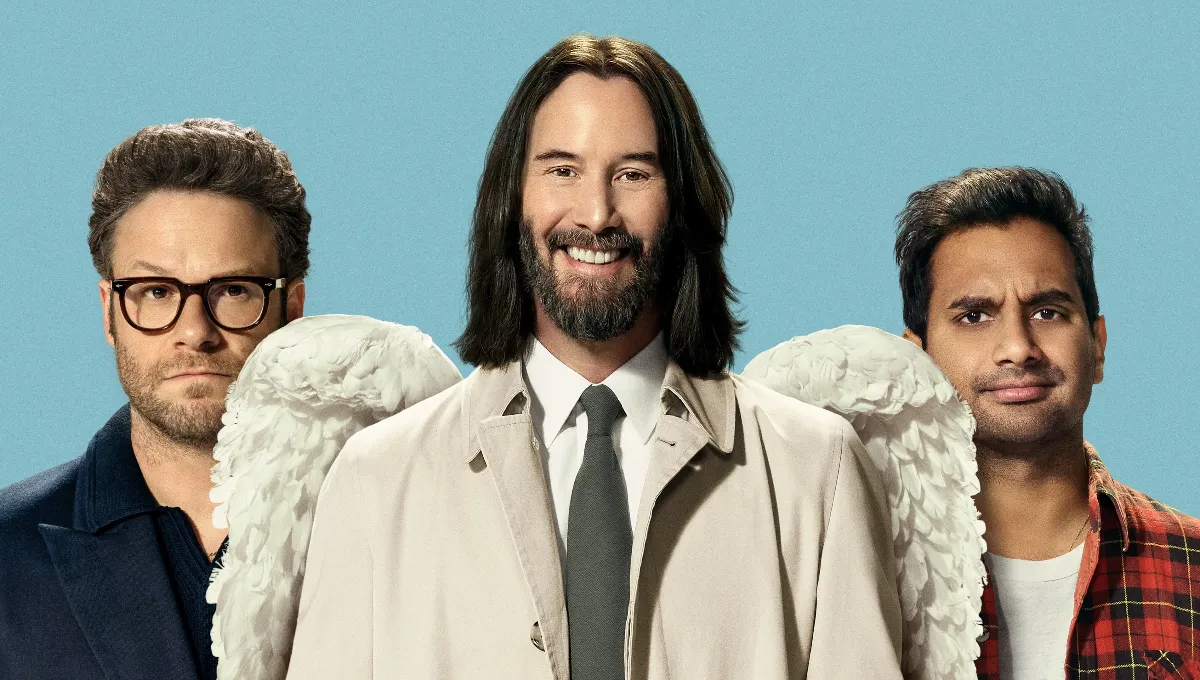There are few names in modern cinema that sound as unmistakable as Keanu Reeves. It carries a calm rhythm — soft syllables that feel both distant and familiar, like the whisper of a story we already know. Today, his name stands for quiet intensity, moral integrity, and the rare humility of a superstar who has never needed to shout to be heard. But there was a time when Hollywood wanted to take that name away.
In a candid reflection shared on the New Heights podcast, Reeves revealed a little-known chapter of his early life — a moment when, fresh off the road from Toronto and full of ambition, he was told by his new Los Angeles manager that his own name wasn’t good enough. It was a baptism by fire into the industry he would later redefine on his own terms. “I was twenty years old,” he recalled. “I got to L.A., met my manager, and the first thing they said was, ‘We want to change your name.’ That was my welcome to Hollywood moment.”
A Star Before the Name
In the early 1980s, Reeves was just another hopeful actor with a car full of dreams and a head full of questions. Hollywood’s system was still built on image crafting — a world where identity could be shaped, polished, and, if necessary, renamed. His birth name, Keanu Charles Reeves, carried Hawaiian roots. It meant “cool breeze over the mountains,” a phrase rich with poetry and heritage. But to executives and agents chasing easy marketing appeal, it sounded unfamiliar, complicated, foreign.
His manager’s suggestion was blunt but common: change your name, make it easier to sell. And so the experiment began.
The Names That Could Have Been
For a brief period, Keanu Reeves wasn’t Keanu Reeves. Trying to fit into the system, he tested out alternative identities that sounded safer, more “Hollywood.” He played with names like Chuck Spadina — inspired by the Toronto street where he grew up — and the more polished, almost theatrical Templeton Paige Taylor. Eventually, he even tried shortening his real name to K.C. Reeves, using his initials to hide the cultural origins that made his name unique.
For a short stretch in the mid-1980s, “K.C. Reeves” even appeared in the credits of a Disney television film. But the disguise didn’t last. When people on set called out, “Hey, K.C.!”, the young actor found himself frozen, not recognizing the person they were addressing. “I didn’t respond,” he later laughed. “It just didn’t feel like me.”
Within months, he returned to his birth name — and unknowingly preserved one of the most iconic monikers in modern film history.
A Hollywood Tradition of Reinvention
The story may sound absurd now, but at the time, it was business as usual. Hollywood has long had a habit of reshaping identities to fit its myths. Archibald Leach became Cary Grant. Norma Jeane Mortenson became Marilyn Monroe. Even today, countless aspiring performers are told to adjust their names, accents, or backgrounds to be “more relatable.”
For Reeves, however, the pressure to conform clashed with something essential. His name wasn’t just a label; it was a reflection of where he came from — a fusion of cultures and histories that defined his sense of self. By keeping it, he quietly resisted a system that often valued packaging over authenticity. And that choice, whether he realized it or not, became the foundation of his career’s integrity.
Becoming Keanu: The Power of Authenticity
After reclaiming his real name, Reeves continued to work through small television roles and low-budget projects until River’s Edge (1986) brought him early critical attention. Two years later came Dangerous Liaisons, and then Bill & Ted’s Excellent Adventure, the film that made “Keanu Reeves” a name people couldn’t forget — even if some weren’t sure how to pronounce it.
That unfamiliar sound, once seen as a liability, became part of his charm. It made him distinct in a city of sameness. The actor with the soft voice, the surfer-philosopher’s presence, and a name no one could mistake for anyone else’s suddenly symbolized everything Hollywood hadn’t expected: quiet strength, vulnerability, and authenticity.
By the 1990s, Reeves had evolved into a global star through Speed and The Matrix, two films that defined entire generations. His name, once deemed “too strange,” now headlined billion-dollar franchises.
Identity, Image, and the Hollywood Machine
Reeves’s story is more than a personal anecdote; it’s a lens into how the entertainment industry treats identity. For decades, names — especially those signaling ethnicity or cultural depth — were seen as obstacles to mainstream success. It’s a pattern that has gradually changed, with new generations of actors proudly embracing names like Lupita Nyong’o, Simu Liu, or Florence Pugh — proof that individuality is now marketable in its own right.
When Reeves refused to erase his name, he wasn’t making a statement of rebellion. He was simply following instinct. Yet, in doing so, he carved out space for authenticity in an environment built on reinvention. The irony is that Hollywood, which once told him to change his name, would later celebrate him precisely because he didn’t.
A Career Built on Integrity
Off screen, Reeves has long been celebrated not just for his roles but for his humility and kindness — traits that seem increasingly rare in an industry obsessed with image. He rides the subway, speaks softly, gives generously, and treats fame like a costume he can take off at will.
Perhaps that grounding came, in part, from the lesson he learned at twenty: that losing your name, even for a moment, is a kind of identity death. By keeping his, he kept something essential — a link to his past, his culture, and his sense of self.
It’s fitting that in recent interviews promoting Good Fortune, Reeves again reflected on those early days. As one of cinema’s most beloved figures, he can finally laugh about it. “They wanted me to be someone else,” he said. “But I guess I just couldn’t do it.”
What’s in a Name? Everything.
If Keanu Reeves had stayed “K.C.” or “Templeton,” would audiences still feel the same connection? Would The Matrix have sounded the same with another name on the poster? Probably not. A name is more than branding; it’s the emotional shorthand of a story. Reeves’s career reminds us that true stardom isn’t built on conformity — it’s built on trust. We believe him because he never stopped being himself.
Today, his name doesn’t just belong to a man — it’s a symbol of quiet perseverance. It represents the idea that you don’t need to reinvent who you are to fit in; sometimes, the most powerful move is refusing to change.
Final Reflection
Nearly forty years after that awkward “welcome to Hollywood,” Keanu Reeves has become everything the industry once told him he couldn’t be: a global icon with an unaltered name. His journey stands as a small but enduring victory for authenticity — proof that staying true to yourself can, in time, become your greatest brand.
Sources: Public statements from the New Heights podcast; interviews and archival features published in major entertainment outlets including Variety, Entertainment Weekly, and People.

Grace Whitmore is a beauty and lifestyle editor at Nestification, exploring the intersection of modern femininity, quiet luxury, and emotional design. Her work focuses on how aesthetics, mindfulness, and self-expression shape today’s idea of calm confidence — where beauty becomes a state of mind.
Based in New York · [email protected]















